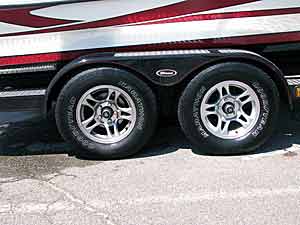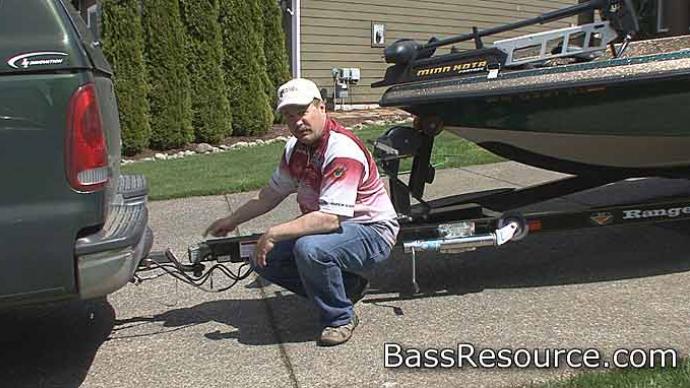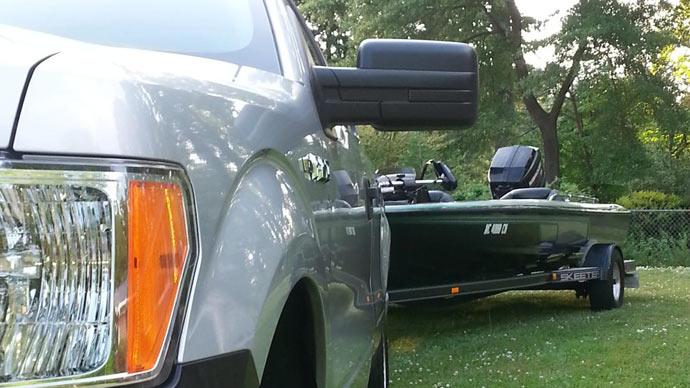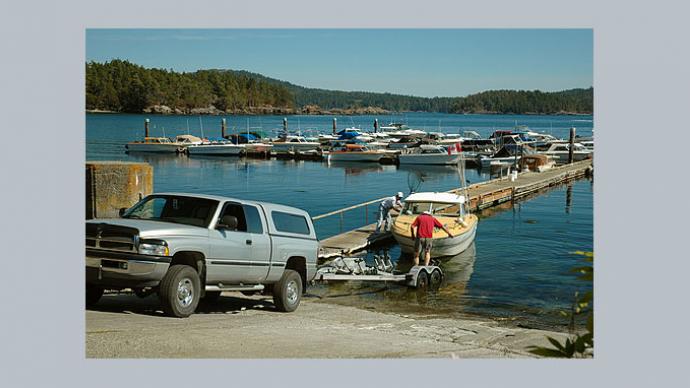Image

Most tournament anglers realize that, at a minimum, happiness is winning back your entry fee -- and, hopefully, a whole lot more. But despite all the planning, pre-fishing, positive attitude, and execution, tournaments are often lost before the angler even gets to the lake. The cause of defeat is not so often what they do, but what they forget to do.
Most major equipment failures on the road or the water could have been prevented at home, especially with trailering. Job one for any tournament angler is to get the boat to the water. Most trailering problems can be avoided by making it a habit to perform a thorough pre-trip check of your rig before leaving for the event.
Trailering Checklist
- Inspect your vehicle hitch for tight bolts before attaching your trailer to the correctly sized ball.
- Hook up safety chains, hitch latch pins, light plugs, and brake activation cables.
- Test your brake lights and turn indicators, ensuring that your trailer lights follow these sequences.
- Carry spare trailer light bulbs or exchangeable light unit, extra fuses, and essential tools.
- Check for proper tire pressure. Low pressure is the primary cause of tire failure, while correct tire pressure results in good tire wear and safe trailering. Carry a tire gauge and check pressure after trailering long distances.
- Be sure all lug nuts are correctly tightened and that your lug wrench fits the trailer wheel lugs.
- Shake each tire/wheel for a tight, secure feel. A loose, noisy, wobbly wheel indicates a failed or failing wheel bearing.
- Carry a properly inflated spare tire.
- Be sure your vehicle jack will work under your low-slung trailer. If not, buy a shorter hydraulic jack for trailer use.
- Check your hitch ball often and replace it at the first signs of wear. Service crews have seen hitch balls worn into such an oval shape that a locked hitch could bounce off in some positions. The narrow neck of the ball can wear quickly and requires inspection often.
- Perform a quick check for trailer lighting problems by attaching your trailer to another vehicle with the same pig-tail plug. If everything works, the problem is in your vehicle's wiring harness or plug.
- Should you accidentally pull the emergency brake actuation cable on your trailer, trip the reset lever underneath the brake housing to avoid towing with some brake pressure being applied, resulting in heat buildup.
- Check your brake master cylinder for leaks and keep fluid levels up.




